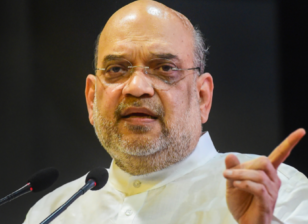Fit, fearless, flawless India turn the tables on mighty Australia
In the second minute of their quarterfinal match against Australia, only the narrow goal post prevented India from going 1-0 down early on. It earned a few wry grimaces from the team in green and gold, who had swaggered into the stadium with all the confidence of being three-time champions, top seed and with a flawless 5-0 record in the group stage of the 2020 Tokyo Olympics.
India had just got lucky, they might have thought.
Seven minutes later, after a sustained bit of pressure, an unmarked Rani Rampal deflected a ball from Vandana Kataria towards the goal. This time, it was the Australian goalpost that prevented India from going up. India did eventually get the lead through a drag flick from Gurjit Kaur in the 22nd minute and held onto it for the remainder of the match to script possibly the greatest moment in Indian women’s hockey – a place in the semifinals for the first time in their history, and two shots at an Olympic medal.
Any suggestion that luck was what saw India through is misplaced. This might have been a side that didn’t even qualify for the London Olympics, didn’t even win a game in Rio and lost three straight games in the group stage to hover on the brink of the precipice, but when it mattered the most, they pitched the perfect game.
“I’m not really sure if the ball had gone in (in the first shot at goal from Australia) if it would have made any difference in the match,” says former Indian coach Neil Hawgood, who had worked with the genesis of the Indian team that competed in Rio. “There wouldn’t have been any difference. Australia were just making mistakes, they were making passes not to the person but just in front or behind. And a lot of that is due to the pressure that was placed on them. Australia’s skilled individuals players were not able to deal with it,” says Hawgood.
Australia never managed a sustained spell of pressure on India. “There were like three, four, or maybe five passes and then pressure from the Indians,” says Hawgood. What that meant was that unlike Sunday’s men’s quarterfinal match against Great Britain, where the team had to defend desperately in the last quarter, India were constantly releasing pressure. “The game against Britain, now that was pressure. This time there was breathing room. I never expected that we would be going toe-to-toe with the Australians for 60 minutes,” says former player and commentator Viren Rasquinha.




